Colin W. Sargent Interview
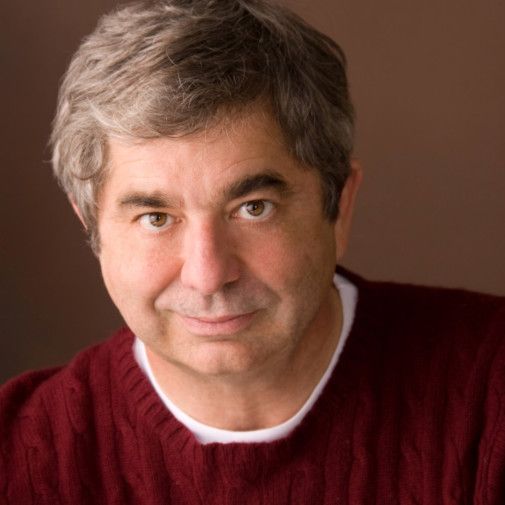
"Readers crave an out-of-body experience."
I am honored that Colin W. Sargent agreed to an interview. I reviewed his latest novel Red Hands on numerous platforms and highly recommended it. It is a story that demanded to be told and no other writer could have done a better job telling it. The novel was highly praised in the UK and the release date in the USA is Valentine's Day, 2023.
Sargent is the founding editor and publisher of award-winning Portland Magazine. He teaches Creative Writing at William & Mary in Williamsburg and is the author of the novels Museum of Human Beings, The Boston Castrato, and Red Hands. He has a Stonecoast MFA, a PhD in creative writing from Lancaster University in the UK, and has written three collections of poetry. He edited Approach Magazine, the US Navy's international flying magazine, whose contributors included Tom Wolfe.
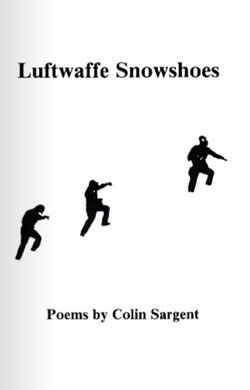
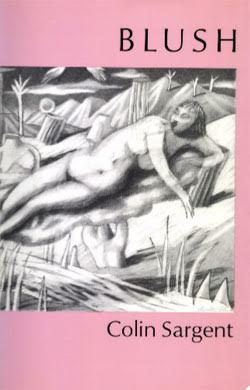
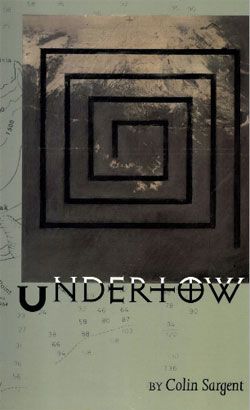
The image is of the covers of three books of poetry. The first cover on the left has the title "Luftwaffe Snowshoes' above the silhouettes of three mountain climbers on a white background above the words "Poems by Colin Sargent". The cover in the middle is a painting of a nude woman on a pink background. The figure is prone on an abstract shore with the words "Blush" above her and the author's name "Colin Sargent" below the painting. The cover on the right is an abstract squared whirlpool over a photo of an ocean wave set on top of a green background. The title "Undertow" is written in an unusual white and black font with the words "By Colin Sargent" in black at the bottom right.
Dan: Your first three books were poetry collections. Luftwaffe Snowshoes and Blush were powerful collections. And your third, Undertow, remains one of my favorite poetry books. How did you evolve from a poet into a novelist? What helped you make that leap?
... images that jump the wall.
Colin: They’re the same thing to me. But they aren’t to everybody. I once asked poet Heather McHugh for a short story for Portland Monthly (we’re really proud of our fiction section which has included authors such Rick Moody and Christina Baker Kline), but she said, “For me, writing a short story would be like walking through a swamp in high heels.” It was arresting, but when I thought about it, her answer was fiction-appropriate. It was a deductive image, sharpening and clarifying. What I love about poetry is inductive images that jump the wall.
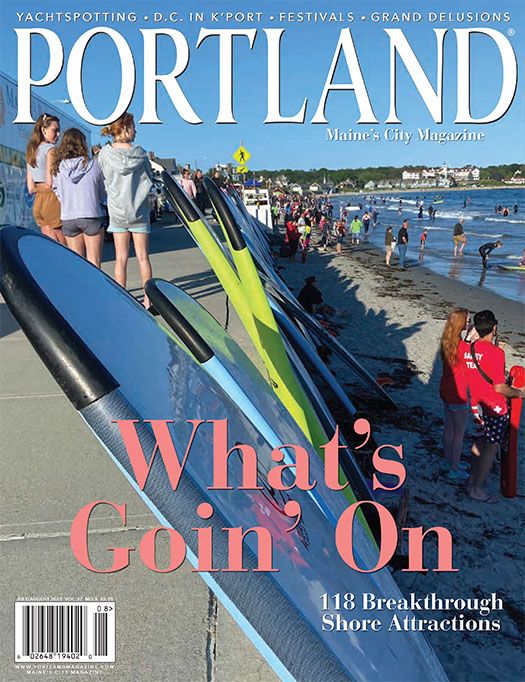
Dan: You and your wife founded Portland Monthly magazine in your Maine
hometown in 1985. By my account, this year you will have in total published approximately 444 short fiction pieces--a strong record of support for writers. Your annual art issue has always been influential and has helped many visual artists. How do you keep up a writing schedule and still put out a monthly magazine?
... never going to die
Colin: At the senior graduation ceremony at Deering High School, Class of 1973, I asked a friend sitting beside me where he was going next. He said, “Out of here! The tallest skyscraper on the Portland peninsula is Maine Medical Center, where we’re all going to die.” Portland Monthly offers a counter narrative. We're never going to die. I write strictly creative fiction from 7 to 8 every morning.

Dan: Your first novel, Museum of Human Beings, amazed me. Jean-Baptiste Charbonneau, the son of Sacagawea--the Indigenous woman who assisted the Lewis and Clark expedition, struggles throughout the novel as he matures to establish his identity in a new world that does not accept him. He is a true outsider. Why did this historic character and his dilemma speak to you as a writer?
... giving up our heroes
Colin: As a Mainer, I myself have always felt like an observer, on the outside looking in. A “year-round summer person,” I guess. But Maine will always be home. Writing this book taught me that we all have a hard time giving up our heroes and seeing them as living, breathing human beings competing with us for oxygen. The expedition papoose did have adulthood. I was floored when I learned that he went to Europe and played piano for Beethoven. He wasn’t always an infant--he was a child star trapped in a legend.
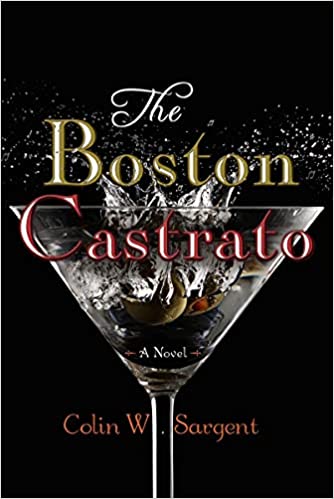
Dan: Your second novel The Boston Castrato was nominated for the Man Booker Prize by Barbican Press of London and nominated for the 2017 Fiction Price by the Virginia Library Association. The opening of that novel is almost an impressionistic dream. You strongly signal to the reader they are in for a cinematic ride. The style matched the story for me. How did you find your voice for this novel?
... a loss so unimaginable
Colin: Barbican Press, the British publisher of The Boston Castrato, specializes in “writing from the discomfort zone.” Since castration is pretty much universally known as a conversation stopper, I challenged myself to see if I could make it a conversation starter. I set out to create a character who’d suffered a loss so unimaginable that he could only feel it and understand its impact across time. It represents the loss of something that we generally think is so essential to who we are and yet isn’t the defining, or even the most important, part of who we are. One Manhattan bookstore, after first accepting, declined to host a reading of The Boston Castrato after the owner learned I hadn’t been actually physically
castrated. Yet, all humans experience a sense of inadequacy. The real question is, how do we carry on?
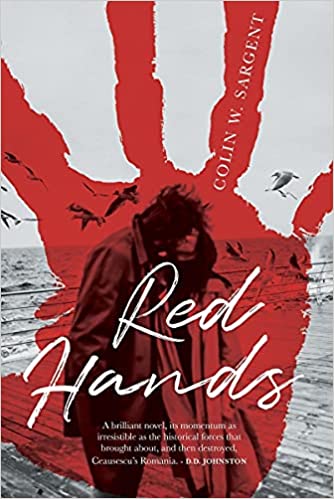
Dan: In an earlier conversation, I told you I consider your third novel Red Hands a masterpiece. Others seem to agree with me. London's "Morning Star" named it one of the top books in the UK. You interviewed Iordana, your heroine, the woman who fled Romania with her son, the grandson of the murderous dictator Nicolae Ceausescu, for hundreds of hours. It could have easily been a nonfiction book. I love how it starts off as a romance, becomes a thriller, and then becomes a realistic drama involving you, Iordana, and her son. How long did it take you to shape the nonfiction material into a novel?
... I promised to keep her secret
Colin: One of the things I enjoy most about Portland Monthly is all the fascinating people I’ve been honored to interview. Red Hands started as a series of conversations with a ferociously reticent and traumatized subject hiding among us in Maine who bore a background so different from my experiences. Iordana Ceausescu came to us from an extremely rarefied socioeconomic group benefitting from membership in Romania’s circle of the highest horrific power, and from a geography so physically and politically and historically different from mine. She was of a different sex, a different age, a different sense of decorum who spoke a different language. As our talks flowed, I came to realize how much a middle-income Mayflower descendant could have in common with a wealthy, glamorous member of the Soviet Bloc’s Nomenklatura. We both had a single son, a love for the ocean, shared a dark sense of humor and a yearning for a world not ruled by fear. “Dana” found herself caught up in a series of unfolding events that I came to understand were actually ones that all of us could potentially be sucked into through the natural tendency of all of us to “look away” while living our lives.
I’d read her passages that I’d worked, on fleshing out the mysteries of what she was trying to express, and I knew I’d gotten it right when she said, “How could you know?” As the scrutiny in the US began to turn on immigration policies and the question of who did and who didn’t have a right to be here grew large and ugly, Iordana developed a fear of being deported. And being shamed. How was she going to be able to protect her son? How could she ever explain herself and her own actions? To quell her terror I promised to keep her secret: that here in Maine, incognito, was the ”Dracu grandson” playing on the Old Orchard Beach basketball team. I put the conversations away until I learned of her passing and realized that she deserved for her story to be told. Looking back through my notes I saw the patterns of her life were actually the principles of a novel. There really is no fact or fiction, only storytelling delivery systems.
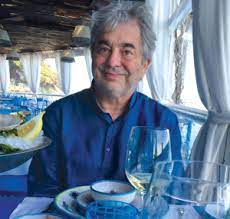
Dan: What suggestions do you have for new writers? What would you have done differently?
Readers want to be astonished.
Colin: Growth for me is developing my negative capability––for me the sense of traveling out of my POV and into the POV of someone entirely different. Readers want to be astonished. When people say, this story isn’t going anywhere, they really mean, this story isn’t taking me anywhere. Readers crave an out-of-body experience.
Dan: I think 2023 will be a great year for you. Thanks for taking the time to talk with me.
Colin W. Sargent's books are available on order from your local bookstore and on most online bookselling platforms.
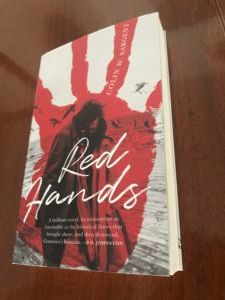
(Book, music, & screen reviews, & interviews, & fiction are sent out monthly from dandomench.com - a forever free secure site with the highest standards of privacy available. Your free login is your email and name - the only information the site retains. Your participation is not public. You are never tracked or your email shared. Thank you if choose to contribute. Your payment information is never stored here. Contact me at dandomench@gmail.com. I will respond as quickly as possible. Thank you!)
